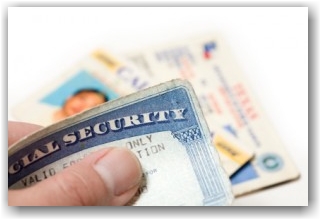I-9 Form Guidance: Social Security Replacement Receipts and the Three Day Business Rule
Friday, September 27th, 2013USCIS has indicated that not all SSA documents referring to the ownership of the SSA account or reflecting an application for a new card, are valid receipts for the I-9 process. So, what constitutes a valid SSA replacement receipt?
The only receipt from SSA that is acceptable under the receipt rule is a receipt that states “This is a receipt to show you applied for a social Security Card and the application was for a lost, stolen or damaged document.” Any other receipt would not be acceptable. Your employee may present a receipt for the application for the replacement of any List A, List B, or List C document. The receipt is valid for 90 days. When it expires, the employee must show you the replacement document for which the receipt was given.
After the receipt expires, you should:
1) Cross out the word “receipt” and any accompanying document number
2) Record the number and other required document information from the actual document presented.
3) Initial and date the change.
You cannot accept a receipt for the I-9 Form for an initial or renewal employment authorization, but can accept a receipt for the application for replacement of a lost, stolen or damaged employment authorization document. You cannot accept receipts if employment will last less than three days.
The Three-Day Business Rule
Q: How does an employer that is operational over the weekend but whose HR office (which is open during regular business hours but closed on weekends) count the 3-business days for I-9 purposes?
A: Employers are required to complete the I-9 Form within 3 business days of the employees first day of work for pay. If the business is operational on the weekends, this counts towards the 3 day timeframe for I-9 completion. Thus, in order to remain in compliance for businesses that operate on the weekends, we suggest that the first day of work for pay be on a week day when the HR office representatives who are trained in I-9 procedures are available.





